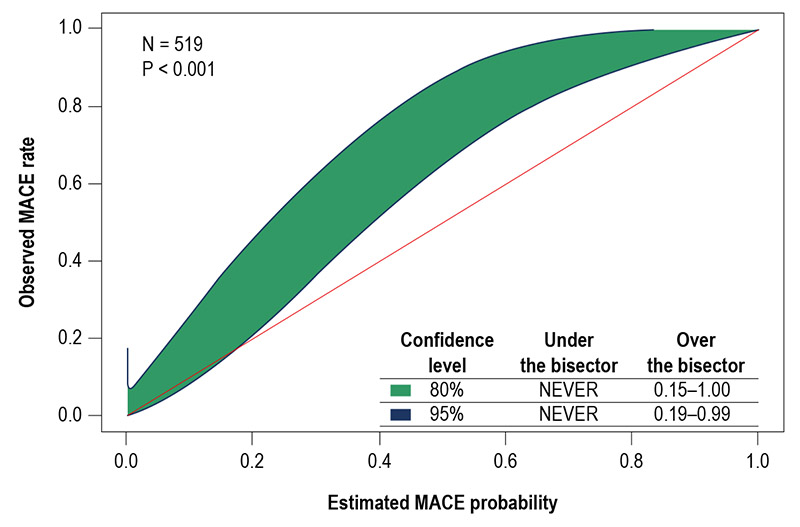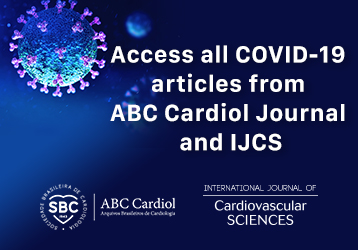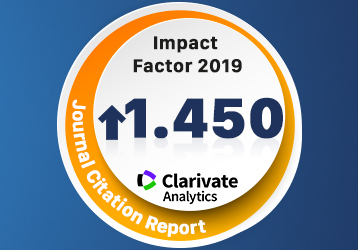Volume 114, Nº 5, May 2020
DOI: https://doi.org/10.36660/abc.20190206
ORIGINAL ARTICLE
HEART, TIMI, and GRACE Scores for Prediction of 30-Day Major Adverse Cardiovascular Events in the Era of High-Sensitivity Troponin
Felipe Torralba
Alberto Navarro
Juan Castellanos-de la Hoz
Carlos Ortiz
Alberth Botero
Freddy Alarcón
Nicolas Isaza
Daniel Isaza

Figure 3 – Calibration belt test for HEART score
Abstract
Background: Multiple scoring systems have been designed to calculate the risk of major adverse cardiovascular events (MACE) in patients with chest pain. There is no data on whether the HEART score outperforms TIMI and GRACE in the prediction of MACE, especially in the era of high-sensitivity troponin assay and in an exclusively Latin-American population.
Objective: To compare the performance of the HEART, TIMI, and GRACE scores for predicting major cardiovascular events at 30 days of follow-up, in patients who consult for chest pain in the emergency department.
Methods: HEART, TIMI, and GRACE scores were analyzed in 519 patients with chest pain at the emergency department. The primary endpoint was the occurrence of MACE within 30 days. The performance of the HEART score was compared with the TIMI and GRACE scores using the DeLong test with p values of 0.05 considered statistically significant.
Results: A total of 224 patients (43%) had MACE at 30 days. The C statistic for the HEART, TIMI, and GRACE score was 0.937, 0.844, and 0.797 respectively (p < 0.0001). A HEART score of 3 or less had a sensitivity of 99.5% and a negative predictive value of 99% to classify low risk patients correctly; both values were higher than those obtained by the other scores.
Conclusion: The HEART score more effectively predicts cardiovascular events at 30 days of follow-up compared to the other scores. High-sensitivity troponins maintain this score’s previously demonstrated superiority. This score offers more precise identification of low-risk patients. (Arq Bras Cardiol. 2020; 114(5):795-802)
Keywords: Cardiovascular Diseases/mortality; Chest Pain; Myocardial Infarction; Forecasting Risk Assessment; Risk Factors; Troponin; Myocardial Ischemia.















